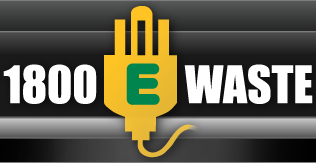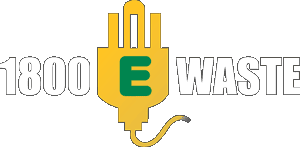Along with the rise in electronic waste, there’s been an increase in the amount of electronic waste that gets exported abroad. According to the United National Environment Programme, the amount of ewaste in China is set to increase by 400% in the next 10 years and by 500% in India. This excessive figure shows the true extent of the global electronic waste problem and, with the digital age and constantly evolving technological advances, it’s only set to get worse.
So what makes exporting electronic waste so beneficial?
At 1800Ewaste we’ve written several articles discussing the dangers of exporting electronic goods and the legislation that has been put in place to prevent it. However, with predictions like the one above, it’s clear that government policies aren’t deterring illegal exporters. What is it that makes exporting so appealing?
The benefits of exporting ewaste, like most things in this world, are purely economical…
- Developed countries would prefer to export their electronic waste due to the high cost of recycling in their own countries. Recycling facilities in most countries need to meet high safety standards, and the procedure is costly. In fact, the cost of recycling in developed countries actually far outweighs the value of the renewable materials inside. In contrast, safety standards for recycling facilities in developing countries are worryingly low. Common practise is usually open air burning or, simply, landfill. For this reason companies find it far more profitable to send their electronic waste abroad under the pretence of “recycling”.
- Exporters can even end up getting paid for their electronic waste by companies in developing countries who wish to resell either the working electronic item or the valuable, renewable materials within them. Low labour costs and child labour keeps their costs low, so it’s possible for them to make a bit more money out of the metals and plastics inside electronics.
- Illegal exporters also attempt to justify their actions by arguing that they are helping the economy of developing countries by providing jobs for the poor. A report by 60Minutes for American TV network CBS discusses how poverty stricken farmers would travel for miles to get paid US$8 a day, to expose themselves to toxic fumes and materials; their choice shouldn’t have to be “poverty or poison”.
Is exporting electronic waste worth it? NO. Australia desperately needs to take responsibility for their electronic waste problem.
- As with every benefit, there is always a negative. And when it comes to exporting electronic waste, the negatives are endless. Exporting electronic waste might be economically beneficial to private companies, but the damage it’s doing to the environment and health haunt future generations in the years to come.
- Australia ratified the Basel Convention in 1992, which states that exporting electronic waste is illegal without the appropriate licenses. It also states that partied countries should dispose of their hazardous wastes (such as ewaste) in an environmentally sound manner. Thus, exporting electronic waste to developing countries is illegal.
- Health risks associated with irresponsible recycling can be deadly. The lack of safety standards in these countries means that workers are exposed to toxic fumes all day long and are pulling the items apart bare handed. Electronic waste contains highly poisonous materials such as lead, mercury and cadmium – toxins are being burnt into the air in small over crowded towns and are extremely harmful when inhaled. The CBS report stated that in the small town on Guiyu in China, 7 out of 10 children have too much lead in their blood and pregnancies are six times more likely to miscarry. It’s no coincidence that this town is also home to a “recycling” facility and ewaste landfill.
- Some of us may be able to shrug our shoulders when it comes to caring about the exporting of electronic waste, by believing that it doesn’t matter do us. However, exporting ewaste might actually have more of an affect to us than first thought. A report for PBS revealed that “organised criminals sometimes comb through…drives for personal information to use in scams”.
 Help combat the illegal export of electronic waste and use a responsible recycler to collect your electronics.
Help combat the illegal export of electronic waste and use a responsible recycler to collect your electronics.
So next time you need to get rid of your electronic waste, make sure you’re using a responsible recycler that can assure you that your data is destroyed and that your electronic waste is properly recycled within Australia.
At 1800Ewaste we are passionate about diverting as much electronic waste from landfill as possible by recycling everything we collect within Australia at ISO14001 recycling facilities. We aim to divert 95-98% of electronic waste from landfill by stripping the ewaste down to its core components which also means that any data left on hard drives and memories is physically destroyed too.
Call 1800Ewaste today on 1800 392 783 for an obligation free quote to have your electronic waste collected and recycled.


 Help combat the illegal export of electronic waste and use a responsible recycler to collect your electronics.
Help combat the illegal export of electronic waste and use a responsible recycler to collect your electronics.